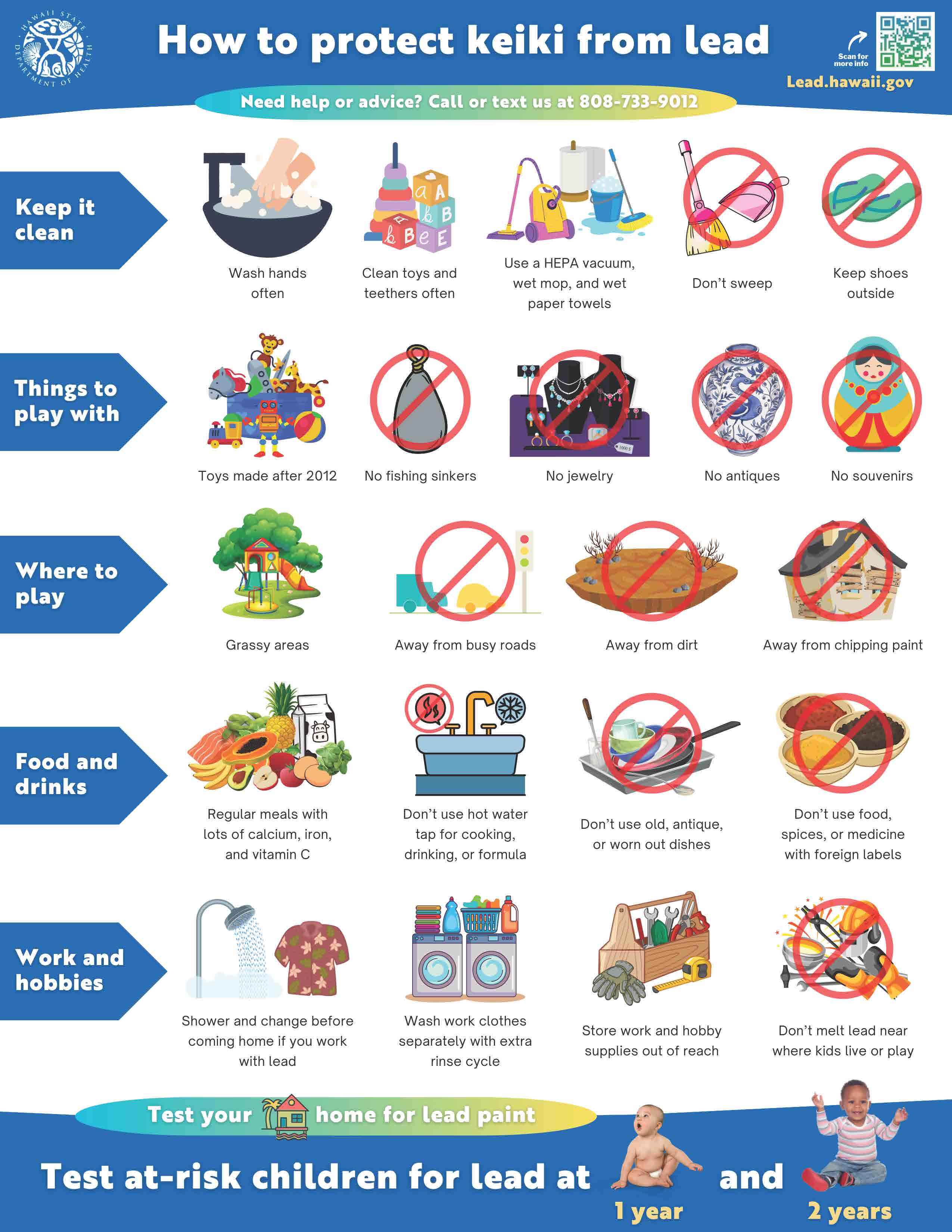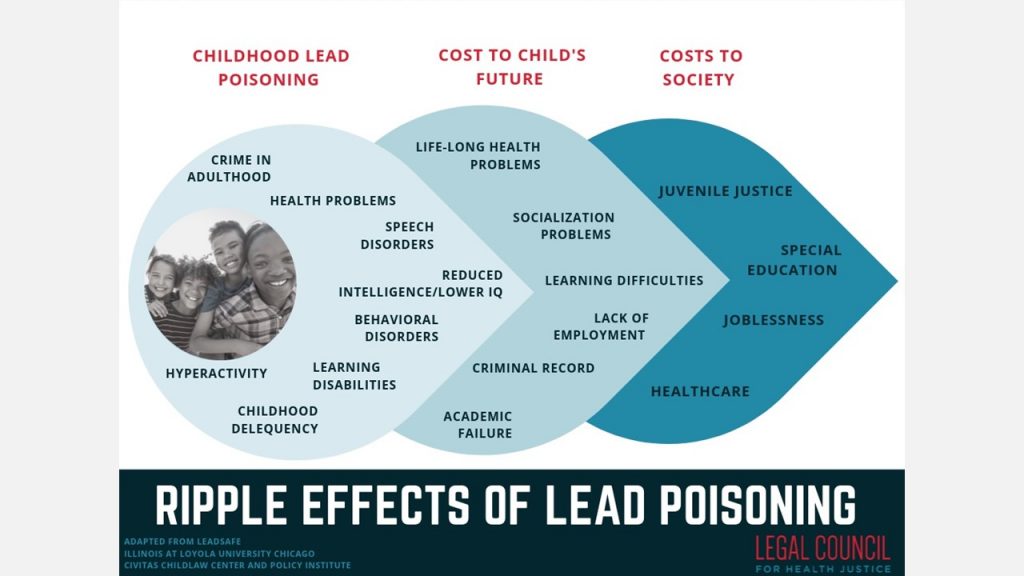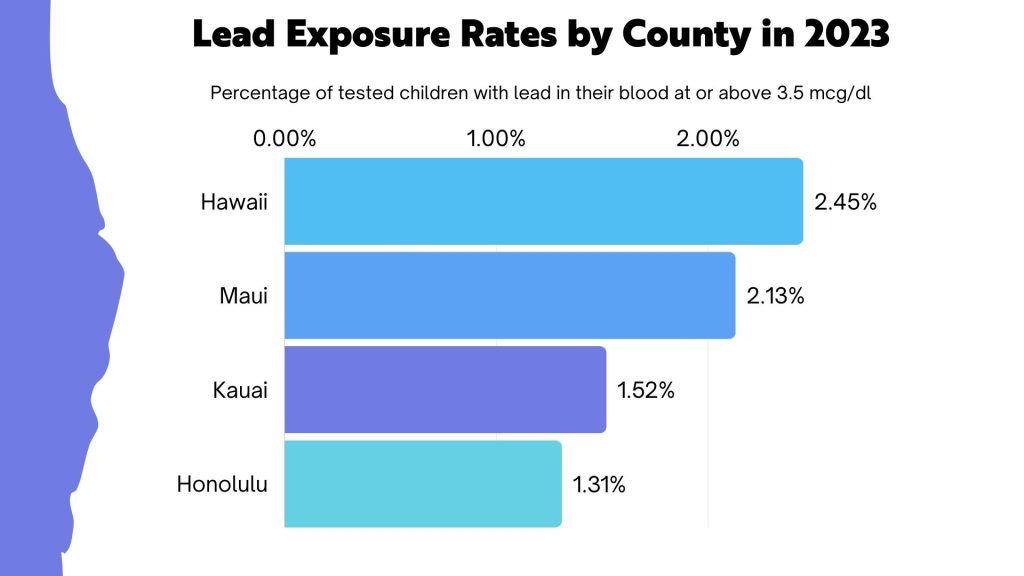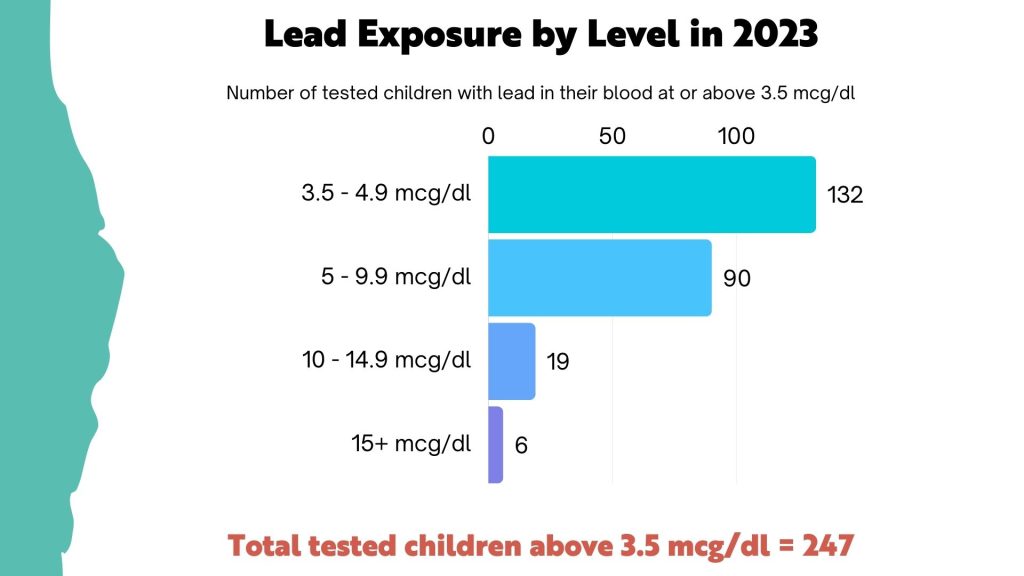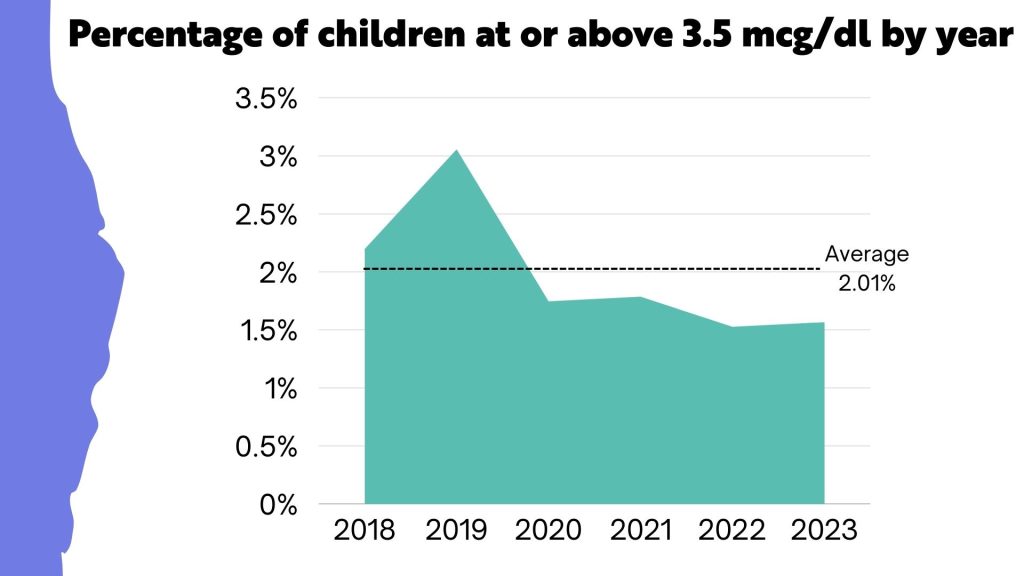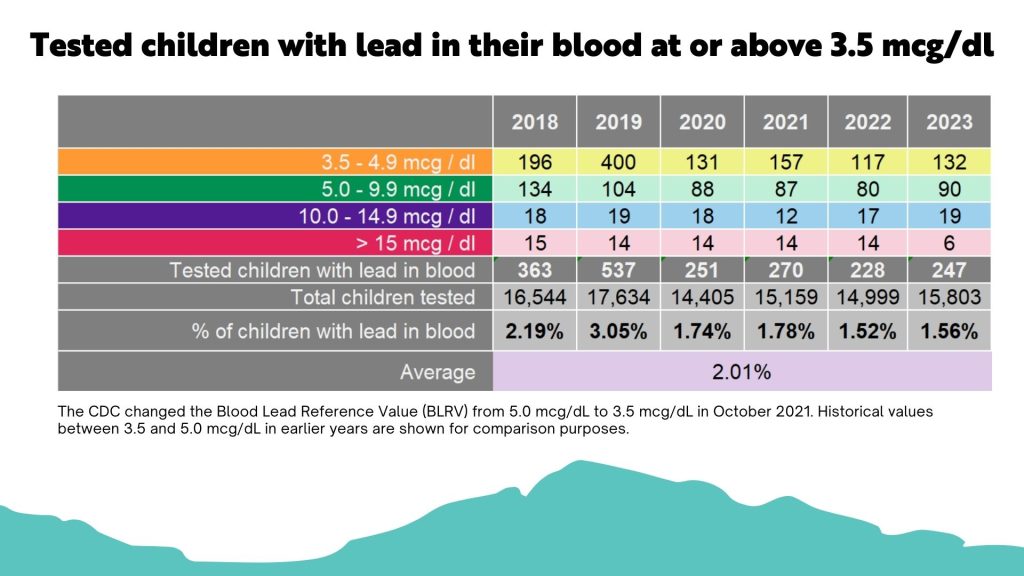
Why Keep Children Away From Lead?
Even a little lead in a child’s blood can hurt their ability to learn, pay attention, and do well in school. You can give them a huge boost in school and for the rest of the lives by learning more and taking a few simple steps today. Call or text us at 808-733-9012 for free help and advice. We are here to help the entire community (property owners, parents, grandparents, uncles, aunties, and more) keep children away from lead.
Why is Lead Dangerous?
Lead is a dangerous metal used in a lot of things, It hurts children when it gets into their bodies. As children start to crawl and walk, they may put things with lead or lead dust into their mouths or put fingers into their mouths after touching things. Even if you find out your child has lead in their body, there are many important things you can do to help. Call or text us at 808-733-9012 today.
There are many types of lead sources in Hawaii like old paint, soil, dust, old toys, jewelry, antiques, souvenirs, fishing tackle, keys, dishes, food, spices, water, jobs, and hobbies. Paint is the most common source of lead in Hawaii. Lead was used in house paint until 1978. Lead dust from old paint falling apart can get on things inside and outside a building. Soil can also have lead in it especially along busy roads or near the outside of buildings.
Work and hobbies like melting lead for fishing tackle, fishing, home repairs, home renovations, auto repairs, scuba diving, working with batteries, construction, painting, plumbing, roofing, soldering, welding, electrical work, guns, pottery, ceramics, and stained glass can be bring lead home on clothes, shoes, and skin. Follow recommendation on this flyer to protect children from lead.
Should Children be Tested for Lead?
A simple blood test is the only way to know if a child has lead in their bodies. Children should get tested at 1 and 2 years of age, and later if never tested before. Testing is required and FREE with MedQUEST/Medicaid. Ask your child’s health care provider about a simple blood test. It is okay to test at other times too if you or your doctor thinks your child may have lead in their bodies.
What Else Can I Do?
It is important to encourage children’s curiosity and desire to learn. Your child uses everyday experiences as a way to grow and understand the world. You can help your child learn and grow by spending one-on-one time with your child, doing fun developmental activities, and enrolling your child in an early childhood program. The Hi’ilei Developmental Screening Program offers FREE developmental screenings, information on community resources, and a list of fun activities to help your children grow and learn. Families can complete a developmental screening online or receive a questionnaire by mail.
Learn More About Lead
MY HOME – Learn about lead in paint, water, and dust.
MY WORK – Learn how to prevent your jobs and hobbies from bringing lead into the home.
MY PATIENTS – Learn about probable lead sources, when/how to test children for lead, and the effects of exposure.
HANDOUTS – Read, print, and order free coloring books, board books, and colorful flyers available in multiple languages.
EVENTS – Join us at our next Lead Testing Station event and have your own items tested for lead. Testing is quick, free, and experts are available to help.
Free Help for Families and Caregivers
Hi’ilei Developmental Screening Program – Department of Health
Early Intervention (0-3 yrs) – Department of Health (automatic eligibility with venous level of 10 mcg/dl)
Special Education (3-5 yrs) – Department of Education
Help with Food and Nutrition (WIC) – Department of Health
Connect with Other Families – Family Hui
Problem Solving and Advice – The Parent Line
Additional Information
Developmental Milestones – Centers for Disease Control and Prevention
Latest Recalls – Applesauce Packets Cinnamon Other Products
Information About Lead in Catchment Water – Safe Drinking Water Branch
Lead Hotline – National Lead Information Center
Lead Poisoning Information – Hawaii Poison Center
Call, Text, or Email Us for Free Help
The Hawaii Childhood Lead Poisoning Prevention Program (HI-CLPPP) is committed to helping the community:
- Prevent children from being exposed to lead.
- Identify children already exposed to lead so the source can be removed.
- Link families with recommended services.
Send mail
741 Sunset Avenue
Honolulu, Hawaii 96816
Send email
[email protected]
Call or text
808-733-9012






